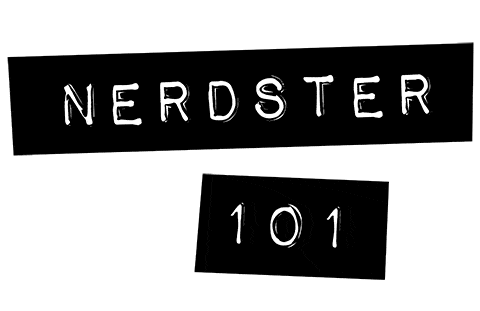Introduction
In this succinct summary, we delve into the philosophical labyrinth of Nikos Kazantzakis’s masterpiece, “Zorba the Greek.” Embark on a journey through existentialist themes, captivating characters, and vivid depictions of Greek culture, all neatly packed into an accessible format that bridges academia and casual reading alike.
“You have your brush, you have your colors, you paint the paradise, then in you go.”
– Nikos Kazantzakis, Zorba the Greek.
Book Information
Title: Zorba the Greek
Author: Nikos Kazantzakis
Genre: Philosophical Fiction
Publication Year: 1946
Brief Overview
“Zorba the Greek” is a philosophical novel about a Greek man named Zorba and his intellectual friend, the narrator, as they engage in a series of thought-provoking dialogues while working in a lignite mine in Crete.
Background
Author’s Background
Nikos Kazantzakis was a Greek writer and philosopher, best known for his philosophical novels, including “The Last Temptation of Christ”. His work often tackled themes of existentialism and humanity’s struggle for spiritual growth.
Publication Context
“Zorba the Greek” is one of Kazantzakis’s most popular and enduring works, reflecting his philosophical beliefs and offering insight into Greek culture.
Character Summary
Main Characters
– Zorba: An enthusiastic and charismatic miner who becomes the intellectual narrator’s companion.
– The Narrator: An intellectual, struggling with existential questions, who befriends Zorba.
Character Development
Throughout the novel, both characters undergo significant development. Zorba’s vivacious nature affects the narrator, who gradually sheds his intellectualism to embrace Zorba’s lust for life.
Plot Summary
Overview
The story revolves around the adventures and philosophical dialogues of Zorba and the narrator as they navigate life’s complexities in a lignite mine in Crete.
Setting
The novel is set in Crete, Greece, primarily within the rural mining community.
Themes and Motifs
Key Themes
Major themes in “Zorba the Greek” include existentialism, the celebration of life, and the tension between intellectualism and physicality.
Motifs and Symbols
Music and dance, especially Zorba’s dance, are recurring motifs symbolizing freedom and life’s irrepressible nature.
Takeaway Morals
Morals
The book posits the importance of embracing life’s joys and sorrows fully, and the coexistence of intellectual pursuits with sensuous experience.
Application
These morals may encourage readers to appreciate the beauty of existence and strive for a harmonious balance between thought and action.
Analysis
Literary Devices
Kazantzakis effectively employs dialogue, metaphor, and vivid descriptions to convey his themes.
Style and Tone
The novel employs a mix of philosophical dialogue and narrative, featuring a reflective and thought-provoking tone.
Critical Reception
Initial Reception
Upon release, the novel was acclaimed for its philosophical depth, compelling characters, and vivid portrayal of Greek culture.
Current Standing
Today, “Zorba the Greek” is considered a literary classic and an influential work in existentialist literature.
Personal Response
Personal Opinion
Delving into “Zorba the Greek” was like being invited to an impromptu Greek feast filled with dance, food, and philosophical banter, all in no particular order. Nikos Kazantzakis has a knack for serving existentialism with a side of humor that left me thinking and laughing, often simultaneously.
I mean, who would have thought a miner and an intellectual could debate life, death, and everything in between while working in a mine and still make it home in time for supper? It’s like watching “The Big Bang Theory” on a Mediterranean island!
The book left me with an urge to dance like Zorba—free-spirited and uninhibited—though I dare say my dance moves would likely cause more laughter than philosophical epiphanies!
Recommendation
For anyone looking for a deeply thoughtful read that doesn’t take itself too seriously, “Zorba the Greek” is a must. It’s as if Kazantzakis was hosting a philosophy seminar with baklava and Greek wine in the mix. If you love vibrant characters, Zorba is your man.
If you’ve ever contemplated the meaning of life, this book will provide more food for thought. Or if you’re simply seeking a taste of Greek culture while lounging in your favourite armchair, look no further. This book caters to the intellectual, the dreamer, the traveller, and the humorist in us all. But a word of caution: spontaneous dancing may ensue after reading!
About the Author
Biography
Nikos Kazantzakis (1883-1957) was a prominent Greek writer and philosopher, recognized for his contribution to modern Greek literature.
Literary Career
Kazantzakis authored numerous novels, essays, plays, and travel books, with “Zorba the Greek” and “The Last Temptation of Christ” being his most renowned works.
Book Details
Publication Details
Originally published in 1946 by Éditions du Seuil, France.
Structural Details
The novel contains 335 pages, divided into 18 chapters.
Conclusion
Summary
“Zorba the Greek” is an immersive tale that invites readers into a philosophical exploration of life, set against the backdrop of Greek culture and landscape.
Final Thoughts
In its essence, “Zorba the Greek” is more than a novel—it’s a celebration of life, a philosophical journey, and a tribute to Greek culture, all bound within pages. Through this summary, I hope you’ve glimpsed the richness of Kazantzakis’s masterpiece and are inspired to explore further.
After all, like a Greek taverna, this book welcomes all, offering a menu of thoughts and experiences that linger long after the last page is turned. So, whether you’re an ardent bookworm or a casual reader, consider this your invitation to the feast of life as seen through the eyes of Zorba. Yamas! (That’s cheers in Greek!)
-
Père Goriot, by Honoré de Balzac – Quick Book Summary
-
The Wind-Up Bird Chronicle, by Haruki Murakami – Quick Book Summary
-
The Sorrows of Young Werther”, by Johann Wolfgang von Goethe – Quick Book Summary
-
A Room of One’s Own, by Virginia Woolf – Quick Book Summary
